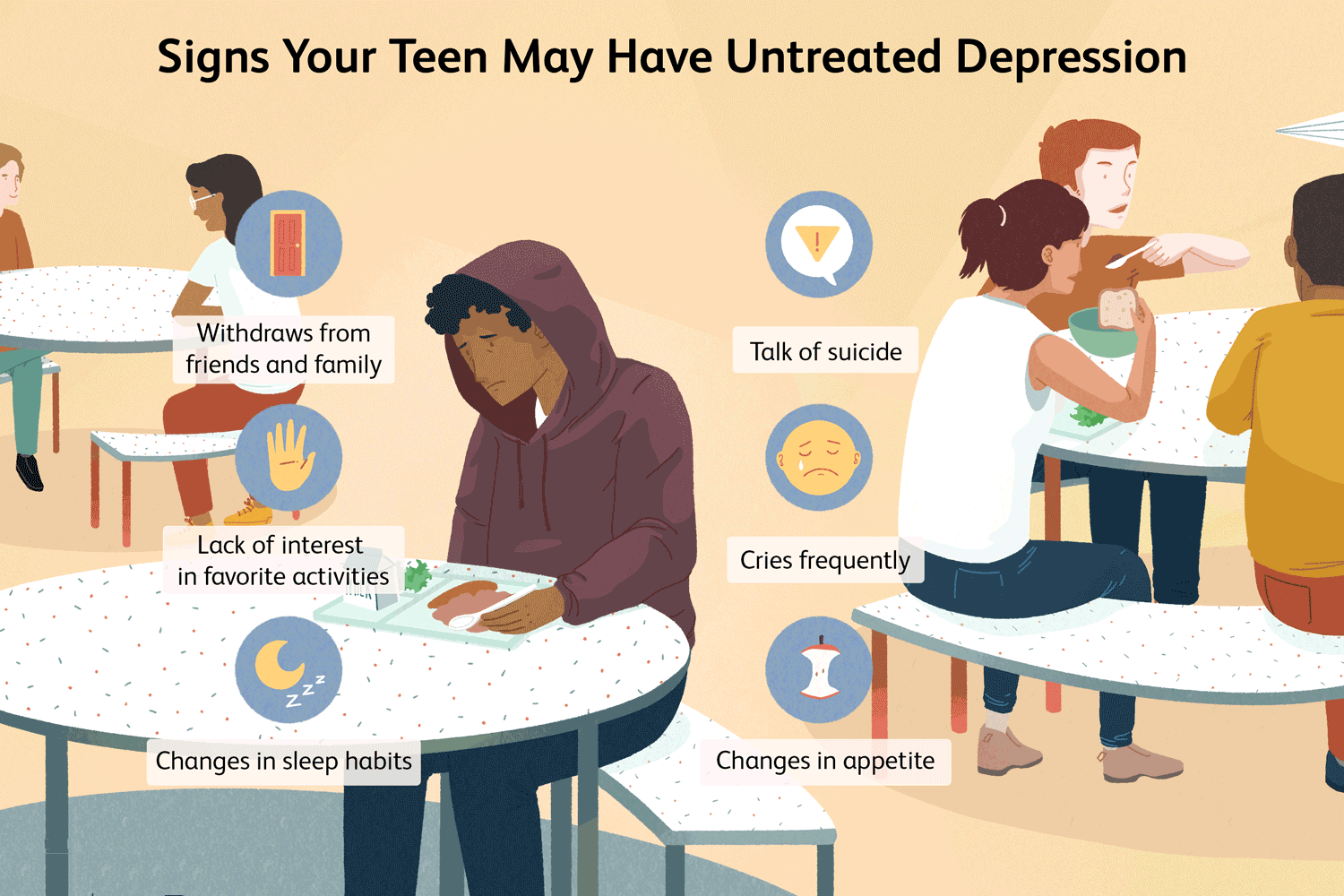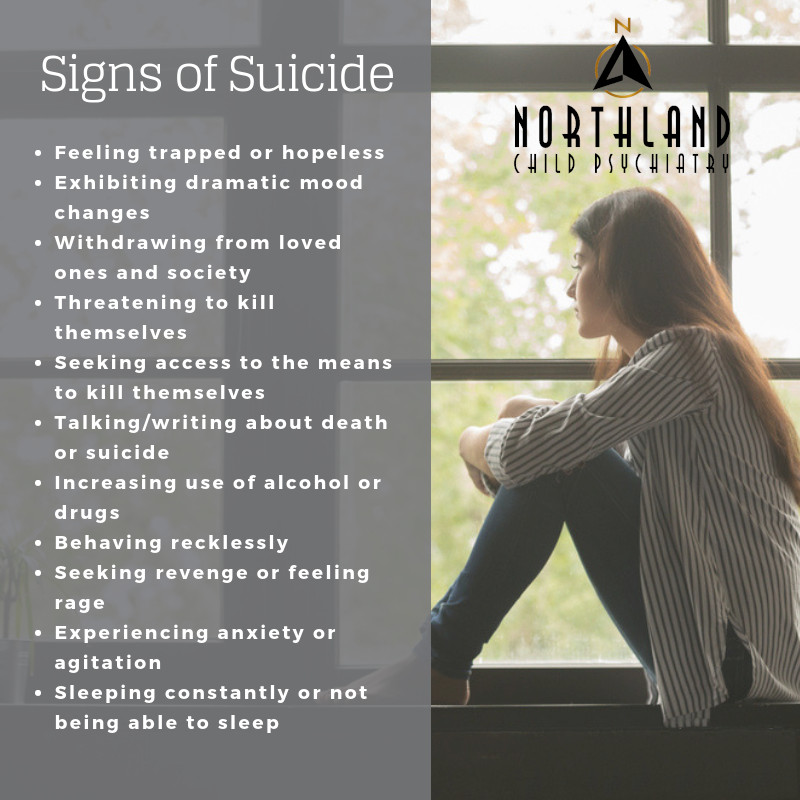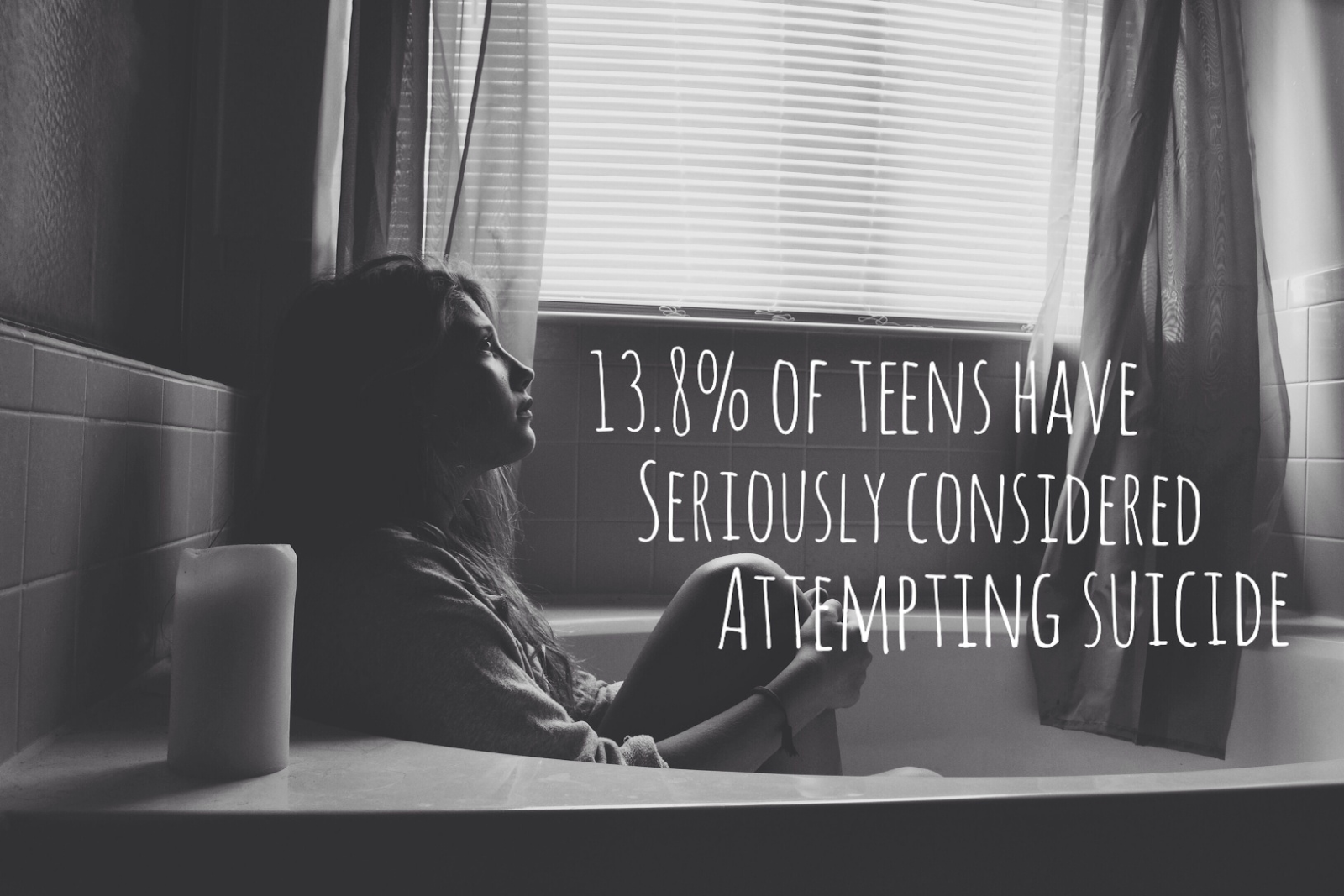How to Spot and Handle Suicidal Thoughts in Teens
Suicidal thoughts are a severe issue that requires urgent attention. For parents, it can be challenging to know when their teen is struggling with suicidal thoughts and how to handle them. It’s essential to understand the signs of suicidal ideation to take the appropriate steps to ensure your teen’s safety and well-being.
Taking the step to ask your teenage child about their suicidal thoughts can feel daunting, but it is crucial if you’re concerned. Being direct and open in your questioning is essential, allowing your teenager to talk openly. Not only are you making it clear that they aren’t alone in such feelings, but you are giving them a space to voice their concerns – something that, as teenagers, they may not have access to otherwise. While it may be difficult for both of you to hear their innermost thoughts and feelings, allowing them the chance and space to express themselves honestly results in feeling understood and validated. Ultimately showing them your support through listening shows them how much they mean to you.
Some common signs of suicidal thoughts in teens include:
– Expressing hopelessness and helplessness
– Withdrawal from family or friends
– Talking about wanting to die, death or suicide
– Changes in mood or behavior, such as sudden happiness after long periods of sadness and depression
– Giving away possessions or saying goodbye to people
– Unusual neglect of personal hygiene, appearance, and healthcare
– Impulsive behaviors, such as risk-taking activities that could lead to death.
Taking immediate action is essential if you’re worried that your teen is exhibiting any of these signs. Please talk with your teen about their feelings and tell them they’re not alone. It’s critical to listen without judgment, offer comfort and support, validate their feelings, and encourage them to get help. Many resources are available in counseling or therapy sessions with a mental health professional and other forms of crisis intervention that can benefit teens struggling with suicidal thoughts.
It’s essential to create an open dialogue with your teen around suicide and mental health so they feel comfortable expressing their feelings to you. Remind them they can trust you with anything and encourage them to seek professional help. Showing supportive behavior towards your teen will create a safe space for them to talk about their struggles and find ways to cope with suicidal thoughts in healthy habits.
Signs of Suicidal Thoughts in Teens
The most common signs of suicidal thoughts in teens include changes in behavior, such as withdrawing from family and friends, isolating themselves, or exhibiting sudden mood swings. Other symptoms may include a decline in academic performance, increased substance abuse, violent behavior or threats of self-harm, talking about death frequently, making statements about feeling hopeless or worthless, or giving away possessions.
She was talking about wanting to die or hurt oneself.
Wanting to die or self-harm is a serious issue that shouldn’t be taken lightly. People who experience this pain usually have deeper underlying roots like depression, anxiety, and other mental health issues. It’s essential to seek professional help if this kind of thought persists and to remember that it’s not something you can brush away – the best thing to do is reach out for support and find ways to cope with what is causing the awful pain. There are also online support groups available where people who struggle with similar thoughts can come together and express their feelings without judgment.
They are expressing feelings of hopelessness.
Expressing your feelings of hopelessness can be a hair-raising experience. On the one hand, it is essential to be open and honest about them; on the other, it can lead to a deep fear of being judged or disregarded by those who could otherwise help. Nevertheless, effectively expressing these feelings is essential for our mental well-being and long-term progress. Finding the right outlets to do so, such as through counseling or living healthy lifestyles, can help us significantly move past this common hurdle. When feeling overwhelmed by hopelessness, we should remember that many options are available and do whatever viable strategy we can to find relief.
She was talking about being a burden to others.
Talking about feeling like a burden to others is an issue many of us face. In times of aloneness and helplessness, it can be challenging to maintain the sense that our presence has value. We might start to feel like we are wasting space or taking up too much time, energy, and resources from those who love us. It’s important to remember that everyone experiences moments of weakness in life, and no person has less value because of it. It’s essential to surround ourselves with people we trust enough to share our struggles without fear of judgment and practice self-validation to mitigate these feelings.
I am increasing alcohol or drug abuse.
Unfortunately, one of the most common mental health issues impacting our world today is increasing alcohol or drug abuse. This problem can manifest itself in different forms, but all of them lead to a decrease in quality of life for those experiencing them and those around them. Substance abuse not only causes individual distress and discord but also has a resounding effect on society. Despite legal prohibitions, the continual rise in substance abuse indicates that there is room to educate better and help people with such disorders get the treatment they desperately need. If we don’t take preventive measures already, this growing trend of substance dependency may cause severe repercussions across our global community.
I am withdrawing from friends and activities.
One of the most common struggles many faces is withdrawing from friends and activities. Withdrawing can refer to self-isolating, avoiding social contact, or struggling to attend events or outings you used to enjoy. It may often occur due to anxiety and discomfort in social settings or with certain people. Still, it may also indicate deeper psychological issues such as depression. It is essential to recognize if your withdrawal is rooted in personal stress and know when it is beneficial to seek help from a mental health professional. Recognizing these signs can help individual growth and allow healthy relationships with family, friends, and the community.
Changes in eating or sleeping habits.
Eating and sleeping habits can change for various reasons – stress, changes in routine, nutrition deficiencies, or sleep deprivation. Those who find that their eating or sleeping habits have changed should take steps to quickly understand why this has occurred and correct the root cause. Maintaining your body and mind is essential to establishing healthy habits, including balanced meals and regular sleep. Strategies such as tracking what you eat or setting the alarm to ensure you get enough sleep can be beneficial techniques for returning to a healthy routine.
Mood swings or sudden changes in behavior.
Mood swings can take people by surprise, wreaking havoc on their lives unexpectedly. These emotional outbursts can affect how individual acts, reacts, and interacts with others. Many things, including health issues, stress, and trauma, can cause sudden changes in behavior. Paying attention to these triggers is essential to manage feelings of anxiety and depression better. Consulting with a mental health professional is also a great way to understand mood swings better and control sudden behavioral changes.
I am giving away prized possessions.
Giving away prized possessions can be difficult; however, it can often come with an incredible sense of satisfaction. Like anything else, controls come and go, so the memories associated with them are the actual prize. For some, sacrificing material things to those less fortunate or even to organizations that help those in need can go a long way. It could be donating old clothes or something more personal like a cherished family heirloom. Whether through physical contribution or raising awareness for a worthwhile cause, every donation matters.
I was writing or drawing pictures that depict death or violence.
Writing or drawing about death or violence can be a powerful and effective tool for conveying intense emotions and provoking thought-provoking questions. It can also be a way to process grief, fear, grief, depression, trauma, and other challenging sentiments. Creators of these types of works can communicate their feelings while readers gain insight into someone else’s experiences. When depicted through the lens of an artist or writer, death and violence become tangible concepts that help us comprehend our world. This type of expression explores various life, duality, and mortality themes. Such works often catalyze conversations surrounding complex topics like mental health awareness and social justice issues.
I am talking about feeling trapped or in unbearable pain.
Feeling trapped is a common emotion that many people experience at some point in their lives. There are ways of dealing with this heavy emotion, whether it’s due to feeling stuck in a negative situation or an inability to cope with unbearable pain. Learning coping mechanisms, such as deep breathing and mindfulness, can help you become more aware of these feelings and better equipped to manage them long-term. Asking for help from those around you can also provide much-needed support and make a difference in uncovering new possibilities for the future. It’s important to remember that whatever your situation, there is light at the end of the tunnel. You can take steps towards living a life free from feeling trapped and overcome any unbearable pain you may be experiencing with the proper support.

Responding to Suicidal Thoughts
It is essential not to ignore any signs of suicidal thoughts in teens. The best way to respond is by listening without judgment and expressing empathy. Talk openly with your teen about their feelings and acknowledge their pain without offering solutions or advice. Encourage them to express themselves fully – they need a safe space to express their emotions without feeling judged or misunderstood. If your teen says thoughts of suicide, it’s essential to seek professional help immediately from a mental health professional experienced in treating adolescents.
How to approach your teens about suicidal thoughts
Taking the step to ask your teenage child about their suicidal thoughts can feel daunting, but it is crucial if you’re concerned. Being direct and open in your questioning is essential, allowing your teenager to talk openly. Not only are you making it clear that they aren’t alone in such feelings, but you are giving them a space to voice their concerns – something that, as teenagers, they may not have access to otherwise. While it may be difficult for both of you to hear their innermost thoughts and feelings, allowing them the chance and space to express themselves honestly results in feeling understood and validated. Ultimately showing them your support through listening shows them how much they mean to you.
Here are some questions you could ask:
- What has been going on that has led you to feel this way?
- Do you have a specific plan for harming yourself?
- Do you have the means to carry out your project?
- Have you been feeling hopeless or helpless?
- Have you felt like there is no way out or things will never get better?
- Have you been experiencing a lot of anger or rage lately?
- Have you been withdrawing from friends and activities that you used to enjoy?
If your child has suicidal thoughts, they must know it’s essential to stay alive.
Warning Signs
Several warning signs may indicate that your child is considering suicide. These include talking about wanting to die or hurt themselves, expressing hopelessness, being a burden to others, increasing alcohol or drug abuse, withdrawing from friends and activities, having abnormal mood swings, and giving away prized possessions.
Risk Factors
Several risk factors can increase the likelihood of your child attempting suicide. These include having a mental health disorder, previous attempts, a family history of suicide, exposure to violence or trauma, and easy access to firearms.
Prevention
The best way to prevent your child from attempting suicide is to be aware of the warning signs and risk factors. If you notice any of these red flags, you must talk to your child about their feelings and get them professional help. Additionally, it’s necessary to remove any firearms or other lethal means from your home if there is a risk that your child may attempt suicide.
Warning Signs in Teens
Some specific warning signs may indicate that your teen is considering suicide. These include talking about wanting to die or hurt themselves, expressing feelings of hopelessness, talking about being a burden to others, increasing alcohol or drug abuse, withdrawing from friends and activities, having abnormal mood swings, giving away prized possessions, writing songs or poems about death, and posting troubling messages on social media.
Warning Signs in Children
Some specific warning signs may indicate that your child is considering suicide. These include talking about wanting to die or hurt themselves, expressing hopelessness, being a burden to others, increased anxiety or irritability, withdrawn behavior, changes in eating or sleeping habits, problems at school, and sudden changes in mood or behavior.
What to Do If Your Child Is Suicidal
If you believe that your child is suicidal, it’s essential to take action immediately. The first step is to talk to your child about their feelings and get them professional help if necessary. Additionally, it’s essential to remove any firearms or other lethal means from your home if there is a risk that your child may attempt suicide. Finally, it would be best to keep communication open with your child so they feel comfortable coming to you with any problems they may face.
It is also essential for parents of teens struggling with suicidal thoughts to take care of themselves during this time. Utilize available resources such as family counseling sessions or support groups for parents whose teens are struggling with mental health issues. Remember that you are not alone – there are many people out there who have gone through similar experiences and who understand what you’re going through. Seek comfort and support from these sources while continuing to provide unconditional love and support for your teen throughout their journey towards healing. With the right help and support, your teen can learn healthier ways of coping with their emotions and lead a mentally healthy life free from suicide ideation.
It is essential to be aware of the warning signs of suicide and recognize the risk factors associated with your child’s mental health. If you believe your child may be considering suicide, it’s essential to immediately talk to them about their feelings and get them professional help if necessary. Additionally, make sure to keep communication open with your child so that they feel comfortable coming to you with any problems they may face. Lastly, remember to take care of yourself during this challenging time. Utilize available resources such as family counseling sessions or support groups for parents whose teens are struggling with mental health issues. With the right help and support, your teen can learn healthier ways of coping with their emotions and lead a mentally healthy life free from suicide ideation.
Working together, we can help ensure teens get the mental health support they need to live whole, happy lives. With awareness, understanding, and love, we can work together to reduce the rate of teen suicide.
Contact us today at 816.819.5166 or schedule your appointment online.




